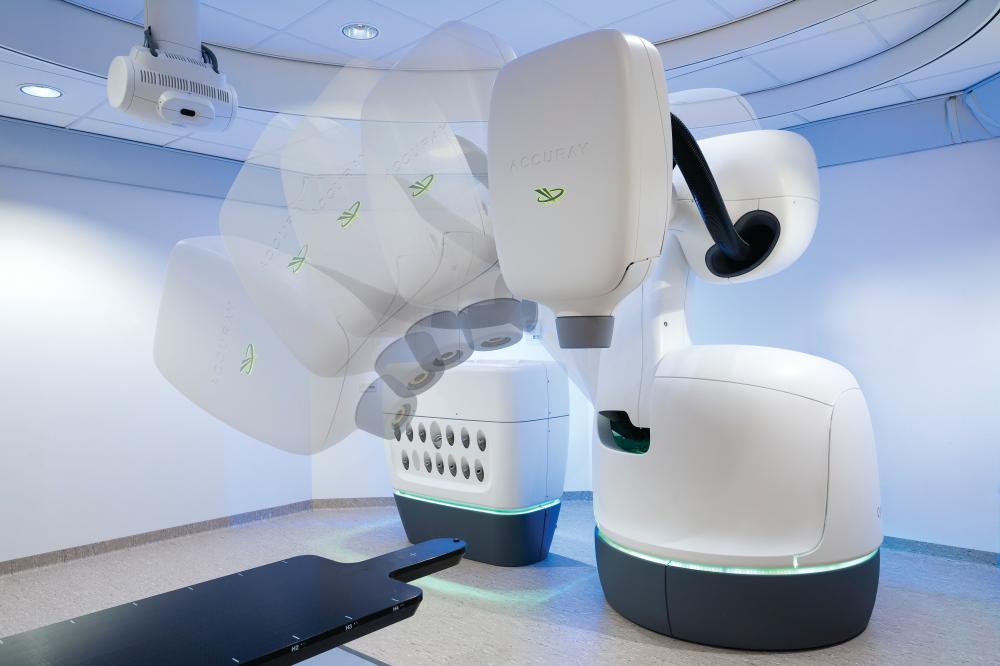MercyOne Cancer Center unveils next-generation CyberKnife


The new machine, which replaces an original CyberKnife machine installed at the downtown cancer center in 2005, is the linchpin of a $16 million capital campaign launched by MercyOne in March to renovate the facility as the new MercyOne Richard Deming Cancer Center. After months of installation and weeks of programming, the new machine will begin use next week for treating patients in a renovated treatment space at the center.
The $4.5 million investment in the new system represents MercyOne’s contribution to the capital campaign, said Karl Keeler, president of MercyOne Central Iowa.
“This project is a direct result of MercyOne’s continued dedication and responsibility to ensure our communities and patients have access to the best possible services, including state-of-the-art technology and treatment options,” Keeler said in a prepared statement. “Even in the midst of a global pandemic, we continue our legacy of care and remain focused on providing the highest level of care possible to all of our patients.”
Since the installation of the original CyberKnife system at Mercy Cancer Center 15 years ago, thousands of patients across Iowa have benefited from the innovative technology. The CyberKnife system offers unique capabilities that not only track tumor movement, but also automatically correct for motion throughout treatment.
Dr. Richard Deming, a national leader in cancer care who has been medical director of MercyOne Cancer Center for the past 10 years, said the new machine will enable even more precise treatments, and consequently will require fewer doses and reduce treatment times.
“In reality, the side effects of radiation treatment are not from treating the tumor,” Deming said. “The side effects happen from the sort of collateral damage that happens when you have to treat additional normal tissue in order to treat the tumor. What the CyberKnife allows us to do is be more accurate and precise, thereby having much smaller margins, meaning much less normal tissues being treated so we can treat with a higher dose per day. That results in delivering the effective dose in a lot fewer treatments.”
As an example, an effective treatment for prostate cancer using a different radiation technology currently requires eight weeks of treatment. Using the new CyberKnife machine, the course of treatment can be shortened to just one week, Deming said.
The technology is particularly helpful for treating tumors of the lung, liver and prostate, where movement is common. Areas of the body on which the CyberKnife has shown effectiveness in treating tumors include the brain, head and neck, lungs, spine, liver, pancreas, kidneys and prostate.
“We are excited to broaden our scope of radiation oncology capabilities,” said Tim Hackbart, MercyOne Cancer Center director. “The new CyberKnife and its improved capabilities will benefit patients and their families for many years to come.”








